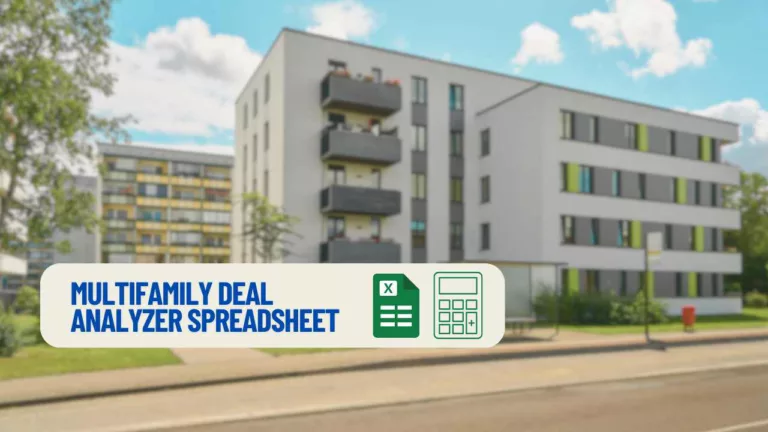

Table of Contents
- Introduction
- Examples of a Real Estate Agent Commission Split
- Real Estate Commission FAQs
- Find the Average Commission Rate by State
- How to Save on a Real Estate Commission
- Real Estate Agents are Worth It
Real Estate Commission Calculator
Enter the sale price of the property, the commission rate, and the broker split percentage to calculate the commission amount and agent’s share.

Introduction to the Real Estate Commission Calculator
For over 20 years, I have worked in the real estate industry to provide valuable tools for navigating complex property transactions. This estate agent commission calculator is tailored to simplify the process and offer precise insights into real estate agent charges.
The tool uncovers the details of real estate fees and realtor commission fees, ensuring transparency for both sellers and buyers and what most real estate agents encounter. It explains how gross commission splits among agents while factoring in realtor commission rates negotiable and real estate agents’ rates. Knowing the relationship between the property’s price, purchase price, and commission costs is essential during any transaction.
Home sellers gain clarity on the fee paid, how the buyer pays, and what happens when the property sells. The tool ensures calculations are accurate for the entire commission, net commission, and even the impact of a brokerage split on profits. It accommodates variables that include the property’s location, enabling precise planning for all scenarios.
This calculator also analyzes listing agreements and integrates with real estate calculators to handle every aspect of sales commissions with ease. It is a resource created for anyone seeking reliable information in the fast-moving real estate market, ensuring smarter decisions and successful outcomes.
Examples of a Real Estate Agent Commission Split
|
Type of Commission |
Description |
|---|---|
|
Percentage of Sale Price |
A percentage (often 5-6%) of the property’s final selling price, split between buyer’s and seller’s agents. |
|
Flat Fee |
A set fee for services, regardless of the property’s sale price. |
|
Tiered Commission |
Commission rate changes based on the sale price, e.g., 5% on the first $500,000, 3% above that. |
|
Discounted Commission |
Lower than standard rates, often for fewer services or quicker sales. |
|
Dual Agency Commission |
One agent represents both buyer and seller, receiving the full commission. |
|
Referral Fees |
A portion of the commission given to an agent who refers a client to another agent. |
In real estate transactions, the total commission rate is determined by an agreed upon rate between the seller and their real estate agent.
This total real estate commission is usually split between the seller’s agent and the buyer’s agent.

Real Estate Commission Rates
Average commission rates often range from 5% to 6% of the home’s sale price, though they can vary depending on market conditions and the property type.
Commission Split – Commission is divided between seller’s and buyer’s agents.
Average Rates – Typically range from 5% to 6% of the sale price.
Market Variation – Rates vary depending on local market and property type.
Brokerage Share – A portion of the commission is what the brokerage takes.
Earnings Estimation – Use a real estate commission calculator for a rough estimate.
Final Calculation – The exact amount depends on the sale price.
Potential Earnings – The total commission rate affects how much more money agents can make.
The brokerage receives a portion of the commission, so it’s important to accurately calculate the exact amount to know how much more money each agent earns.
The list price can provide a rough estimate of the potential earnings, but the final commission hinges on the sale price.

Real Estate Commission FAQs
What are Flat Fee Agents?
Flat fee agents offer their services for a fixed price, rather than a percentage of the sale price. This can sometimes save money for the seller.
What is the Standard Commission Rate?
The standard commission rate in the real estate industry typically ranges from 5% to 6%, but it can vary based on many factors including the local housing market and the property itself.
How do real estate agent commissions work?
- Commissions are typically paid by the seller at the closing of the transaction.
- The commission is usually a percentage of the final sale price.
Why do sellers pay the buyer’s real estate agent commission?
- It’s a traditional practice aimed at incentivizing buyer agents to show properties to potential home buyers.
- This cost is often factored into the overall selling price of the home.
Are There Different Commission Rates in Different U.S. States?
Yes, commission rates can vary significantly from one state to another depending on local laws and market conditions.
Can you offer a buyer’s agent a lower commission rate?
While possible, offering a lower commission rate might reduce the interest of buyer agents in showing your property to potential buyers.
What is a Listing Fee?
A listing fee is an alternative to a commission-based model, where the seller pays a flat rate to list their property.

Find the Average Commission Rate by State
Commission rates can vary widely by state due to differences in the real estate market and local practices. Researching top local agents and discussing commission rates can provide more specific insights.
How to Save on a Real Estate Commission
Consider negotiating the commission rate with your real estate agent.
- Look into discount real estate brokerage services that offer lower commission rates.
- Explore flat fee listing services as an alternative to traditional commission structures.
Calculating real estate commission involves understanding the percentage of the commission, the home’s selling price, and how that commission is split between the selling and buying agents.
While the standard commission rate has historically been around 5% to 6%, there are ways to negotiate and potentially save on these costs.
Hiring a discount agent, opting for a flat fee service, or negotiating the commission rate, means you should stay informed. A calculator allows you to navigate the real estate transaction process more effectively. Every dollar saved on commission is a dollar added to your sale proceeds.
Use Our Free REALTOR® Commission Calculator
Accurately calculating the intricacies of real estate commissions can be daunting for both seasoned and first-time home sellers.
To simplify this process, we’ve integrated a user-friendly Real Estate Commission Calculator right into our post.
This innovative tool is designed to demystify the complexities surrounding agent’s commission, REALTOR® fees, and other associated costs in a real estate transaction.
Inputting details such as your home sale price, the commission percentage agreed upon with your listing agent or seller agent, and any closing costs, you can conveniently calculate the real estate commission.
If you’re working with real estate agents from national associations, considering discount brokers, or aiming to understand the buyer agent’s commission, then this calculator provides clarity on the commission fees that will be distributed between the respective brokerages involved in the sale.
It’s an essential resource for home sellers looking to find a qualified buyer without losing sight of the sales price after commission fees and other expenses.
Give it a try to quickly and accurately ascertain the financial aspects of selling your property, ensuring you’re fully informed about the commission fee and how it impacts your final proceeds.
Real Estate Agents are Worth It
In the intricate dance of buying and selling real estate, agents stand out as invaluable partners.
Real estate agents, often members of a national association, bring a wealth of benefits to the table, significantly alleviating the stress and complexity for both buyers and sellers.
Their expertise not only helps in accurately calculating real estate commissions but also ensures that both the buyer’s agent commission and other fees are transparent and fair.
Here are just a few reasons why engaging a real estate agent is a wise decision.
- Professional Negotiation – Agents act as professional negotiators, adept at securing the best possible terms for their clients. Whether you’re a home seller or a buyer, having an agent by your side can mean the difference between a good deal and a great one.
- Understanding of Additional Costs – From REALTORS® charges to other unexpected expenses, agents can help navigate the additional services and extra costs that might arise, ensuring you’re never caught off guard.
- Expert Guidance – Real estate transactions involve numerous other factors that can affect the final outcome. Agents provide crucial advice and guidance, helping both parties make informed decisions.
Real estate agents not only contribute to smoother transactions but also work tirelessly to protect the interests of both the seller and buyer, making the entire process more efficient and less daunting.





